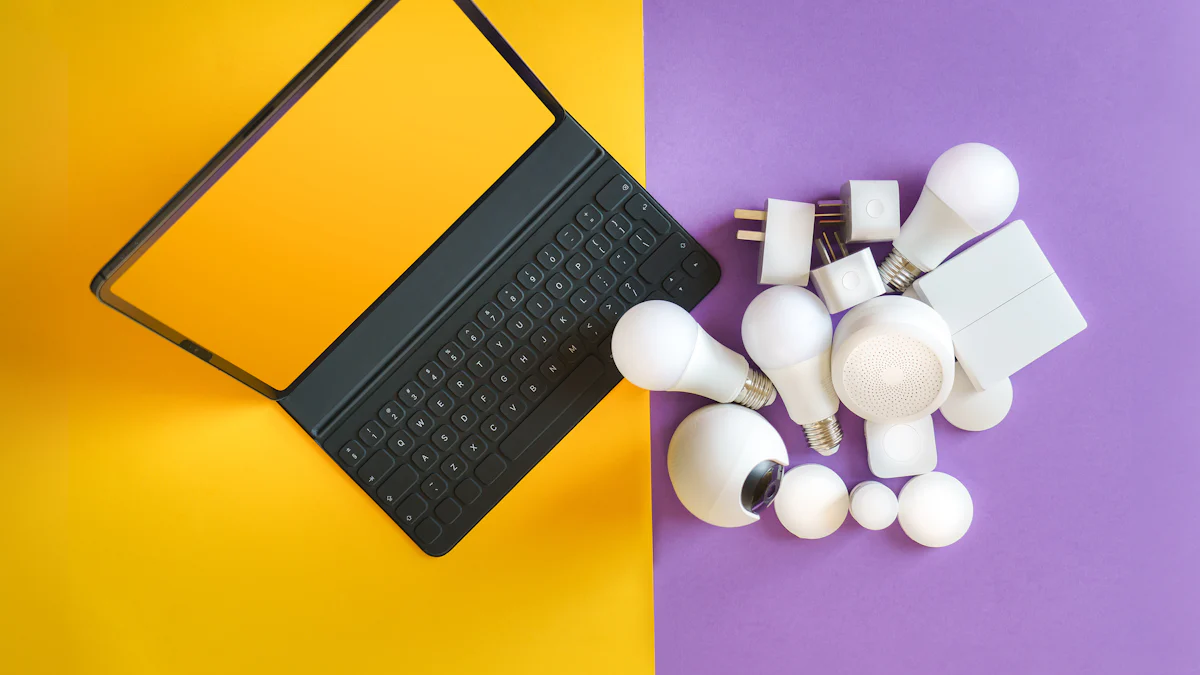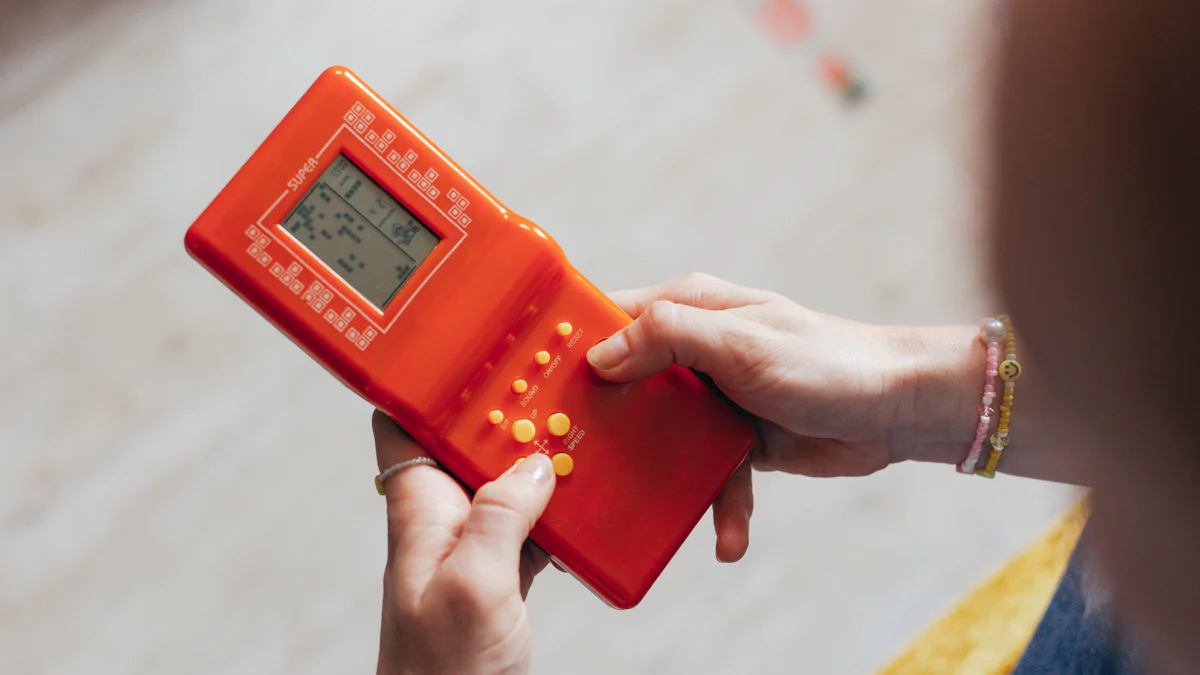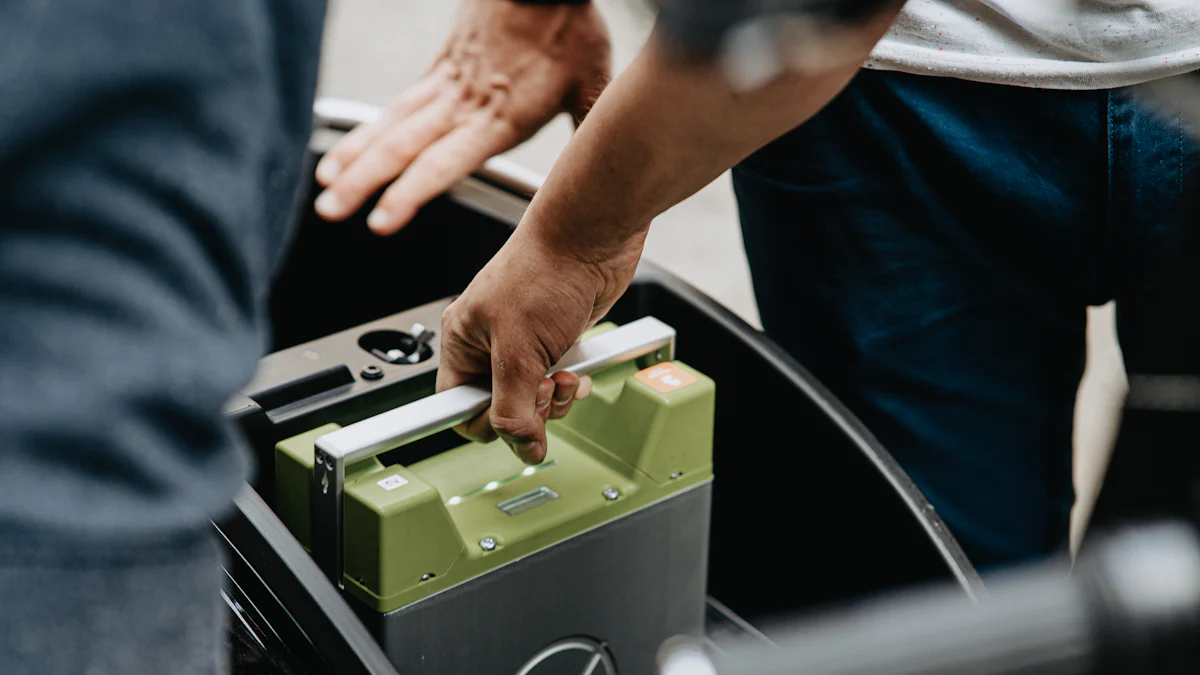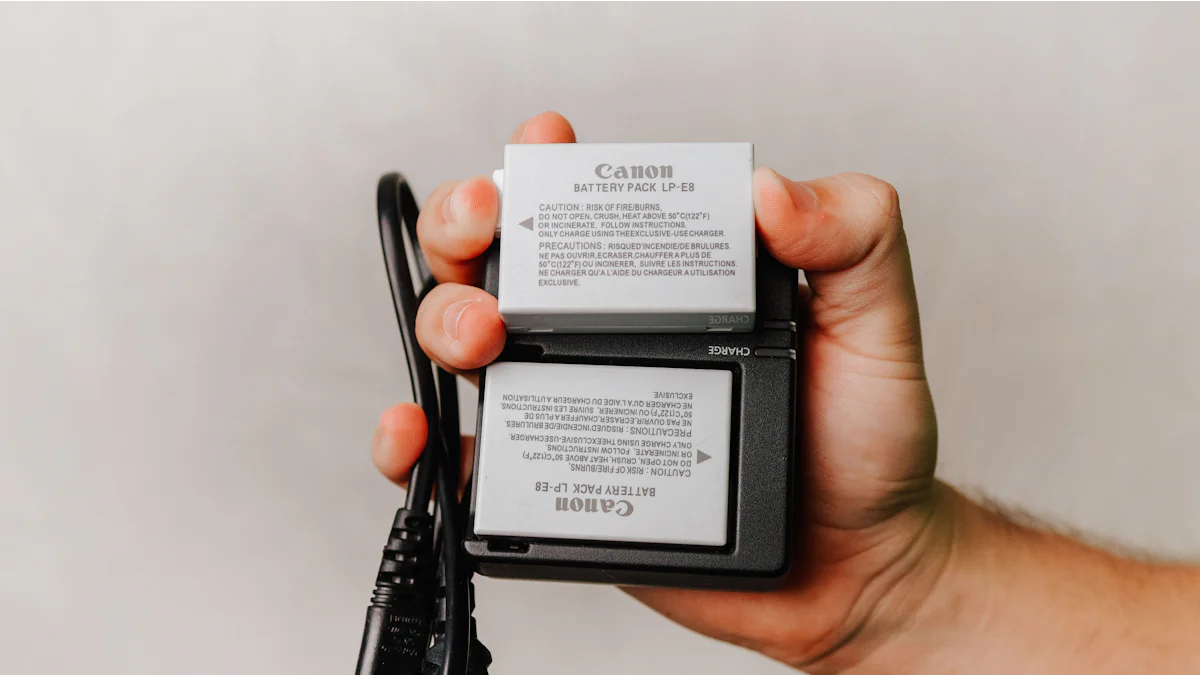
Alkaline batteries have become the go-to choice for powering remote controls. The 12V23A LRV08L L1028 Alkaline Battery, in particular, delivers consistent energy over extended periods, making it indispensable for low-drain devices. This alkaline battery relies on a chemical composition that includes manganese dioxide and zinc, ensuring reliable performance. Its long shelf life and affordability further enhance its appeal. Whether it’s for televisions, air conditioners, or gaming consoles, alkaline batteries like the 12V23A provide the dependable power needed for seamless operation. Their widespread use in consumer electronics highlights their unmatched reliability and efficiency.
Key Takeaways
- Alkaline batteries, like the 12V23A LRV08L L1028, provide consistent energy output, making them ideal for low-drain devices such as remote controls.
- With a long shelf life of up to three years, alkaline batteries ensure that your remote controls are always ready for use, even after extended periods of inactivity.
- Their high energy density allows alkaline batteries to last significantly longer than carbon-zinc batteries, reducing the frequency of replacements and saving you money.
- Alkaline batteries are widely available and cost-effective, making them a practical choice for everyday household use.
- To maximize battery life, store alkaline batteries in a cool, dry place and avoid mixing old and new batteries in devices.
- Choosing high-quality alkaline batteries can prevent leakage and ensure reliable performance, protecting your devices from potential damage.
What Is an Alkaline Battery and How Does It Work?

Alkaline batteries power countless devices in our daily lives. They stand out due to their unique chemical composition and ability to deliver consistent energy. Understanding how these batteries work reveals why they are so effective for remote controls and other low-drain devices.
The Chemical Composition of Alkaline Batteries
Alkaline batteries rely on a combination of manganese dioxide and zinc. These two materials create a chemical reaction that generates electricity. The battery contains an alkaline electrolyte, usually potassium hydroxide, which enhances the efficiency of this reaction. Unlike older battery types, such as carbon-zinc, alkaline batteries maintain a steadier energy output over time. This stability ensures that devices like remote controls operate smoothly without sudden power drops.
The design of alkaline batteries also includes advanced features to prevent leakage. For example, many modern alkaline batteries, including those from Panasonic, incorporate Anti-Leak Protection. This innovation safeguards devices from damage, making alkaline batteries a reliable choice for long-term use.
How Alkaline Batteries Provide Reliable Power for Devices
Alkaline batteries excel at delivering consistent voltage. This steady performance is crucial for devices that require uninterrupted power, such as remote controls. When you press a button on your remote, the battery provides the necessary energy instantly. This responsiveness stems from the high energy density of alkaline batteries, which allows them to store more power compared to older technologies.
Additionally, alkaline batteries have a longer lifespan. They can last for months or even years in low-drain devices. This longevity reduces the need for frequent replacements, saving both time and money. Their ability to hold a charge for extended periods also makes them ideal for storage, ensuring they remain ready for use whenever needed.
Why Alkaline Batteries Are Suited for Low-Drain Devices Like Remote Controls
Remote controls are classified as low-drain devices because they consume minimal power during operation. Alkaline batteries are perfectly suited for these devices due to their ability to provide consistent energy over long periods. Unlike high-drain devices, which quickly deplete battery power, remote controls benefit from the slow and steady energy release of alkaline batteries.
The long shelf life of alkaline batteries further enhances their suitability. Many alkaline batteries, such as the 12V23A LRV08L L1028, can remain functional for up to three years when stored properly. This feature ensures that even if you don’t use your remote control frequently, the battery will still perform reliably when needed.
Key Advantages of Alkaline Batteries for Remote Controls

High Energy Density for Long-Lasting Power
Alkaline batteries excel in delivering high energy density, which ensures they last longer than many other battery types. This feature makes them ideal for remote controls, where consistent power is essential. When I use an alkaline battery in my remote, I notice that it performs reliably for months without needing replacement. This longevity stems from the battery’s ability to store more energy compared to older technologies like carbon-zinc batteries.
For instance, alkaline batteries typically offer 4-5 times the energy density of carbon-zinc batteries. This means fewer interruptions and a seamless experience when operating devices like TVs or air conditioners. The advanced engineering behind alkaline batteries ensures that they maintain steady voltage, providing dependable performance throughout their lifespan.
Long Shelf Life for Reliable Storage
One of the standout features of alkaline batteries is their impressive shelf life. I’ve often stored alkaline batteries for years, and they still work perfectly when I need them. This reliability comes from their chemical composition, which resists degradation over time. Many alkaline batteries, including the 12V23A LRV08L L1028, can remain functional for up to three years when stored properly.
This long shelf life is particularly beneficial for remote controls, which are low-drain devices. Even if you don’t use your remote frequently, the battery will retain its charge and perform effectively when needed. This reliability eliminates the frustration of finding dead batteries in devices that haven’t been used for a while.
Cost-Effectiveness and Wide Availability
Alkaline batteries strike the perfect balance between performance and affordability. They are widely available in stores and online, making them a convenient choice for consumers. I’ve found that alkaline batteries offer excellent value for money, especially when considering their long lifespan and consistent performance.
Compared to lithium batteries, alkaline batteries are more cost-effective for everyday use. While lithium batteries may have a higher energy density, their price often makes them less practical for low-drain devices like remote controls. Alkaline batteries provide the power you need at a fraction of the cost, making them the go-to option for most households.
Additionally, the versatility of alkaline batteries adds to their appeal. They are compatible with a wide range of devices, ensuring that you can use them not just in remote controls but also in other electronics. This flexibility, combined with their affordability, makes alkaline batteries a reliable and economical choice.
Compatibility with Most Remote Control Models
Alkaline batteries work seamlessly with nearly all remote control models. I’ve noticed that whether I’m using a universal remote for my TV or a specialized remote for my garage door opener, alkaline batteries fit perfectly and deliver consistent power. Their standardized sizes and voltages make them compatible with a wide range of devices, eliminating the hassle of searching for specific battery types.
One reason alkaline batteries excel in compatibility is their ability to provide steady energy output. Remote controls, regardless of brand or design, require a reliable power source to function efficiently. Alkaline batteries meet this demand by maintaining consistent voltage throughout their lifespan. This ensures that every button press on your remote translates into an immediate response, whether you’re changing channels or adjusting the volume.
Another advantage is the versatility of alkaline batteries across different remote control technologies. From infrared remotes to more advanced Bluetooth or RF models, alkaline batteries adapt effortlessly. I’ve used them in everything from basic remotes to high-tech smart home controllers, and they’ve never let me down. Their ability to perform reliably across various devices highlights their universal appeal.
Additionally, alkaline batteries outperform older technologies like carbon-zinc batteries in both energy density and longevity. This makes them a superior choice for remote controls, which often sit idle for long periods. Unlike carbon-zinc batteries, which may lose charge quickly, alkaline batteries retain their power, ensuring your remote is always ready to use.
The widespread availability of alkaline batteries further enhances their compatibility. You can find them in virtually any store, making replacements quick and convenient. Their affordability also means you don’t have to compromise on quality to keep your remote controls powered. Whether it’s a standard AA or AAA size or a specialized 12V23A model, alkaline batteries provide a dependable solution for all your remote control needs.
Comparing Alkaline Batteries to Other Battery Types

Alkaline vs. Lithium Batteries: Which Is Better for Remote Controls?
When choosing batteries for remote controls, I often compare alkaline and lithium options. Both have unique strengths, but alkaline batteries consistently prove to be the better choice for low-drain devices like remotes. Lithium batteries excel in high-drain electronics, such as cameras or portable gaming devices, due to their higher energy density. However, this feature becomes unnecessary for remote controls, which require minimal power to function.
Alkaline batteries offer a more practical solution. They provide steady energy output over long periods, ensuring reliable performance for months. Lithium batteries, while powerful, come at a higher cost. For everyday use in remote controls, I find alkaline batteries to be more cost-effective and widely available. Their affordability and compatibility with most remote models make them the ideal choice for households.
Alkaline vs. Carbon-Zinc Batteries: Why Alkaline Is the Superior Choice
I’ve used both alkaline and carbon-zinc batteries in the past, and the difference in performance is striking. Alkaline batteries outperform carbon-zinc batteries in nearly every aspect. They deliver higher energy density, which means they last significantly longer. This longevity reduces the need for frequent replacements, saving time and money.
Carbon-zinc batteries, on the other hand, tend to lose charge quickly, especially in devices that sit idle for extended periods. Remote controls often remain unused for days or weeks, making alkaline batteries the better option. Their ability to retain power ensures that remotes work reliably whenever needed. Additionally, alkaline batteries resist leakage more effectively, protecting devices from potential damage. For these reasons, I always choose alkaline batteries over carbon-zinc alternatives.
How Alkaline Batteries Strike the Perfect Balance for Everyday Use
Alkaline batteries strike an ideal balance between performance, affordability, and availability. They are the most commonly used type of primary battery, and for good reason. I’ve found that they work exceptionally well in low- to medium-power devices like remote controls, clocks, and flashlights. Their steady energy output ensures consistent performance, while their long shelf life makes them reliable for storage.
Unlike other battery types, alkaline batteries are hardy and versatile. They adapt to various devices without compromising efficiency. Whether I’m powering a TV remote or a garage door opener, alkaline batteries deliver dependable results. Their widespread availability also adds to their appeal. I can easily find them in stores or online, making replacements convenient and hassle-free.
In my experience, alkaline batteries provide the best value for everyday use. They combine durability, reliability, and cost-effectiveness, making them the go-to choice for powering remote controls and other household devices.
Tips for Maximizing the Life of Alkaline Batteries in Remote Controls

Proper Storage to Maintain Battery Freshness
Storing alkaline batteries correctly ensures they remain fresh and ready for use. I always keep my batteries in a cool, dry place, away from direct sunlight or heat sources. High temperatures can accelerate chemical reactions inside the battery, reducing its lifespan. Humidity also poses a risk, as it may lead to corrosion or leakage. To avoid this, I store my batteries in their original packaging or a sealed container to protect them from moisture.
Another tip I follow is to avoid storing batteries in the refrigerator. While some believe this extends battery life, the condensation from temperature changes can damage the battery casing. Instead, I focus on maintaining a stable room temperature for storage. Proper storage habits have saved me from the frustration of finding dead or leaking batteries when I need them most.
Removing Batteries from Unused Devices
Leaving batteries in devices that are not in use can lead to unnecessary power drainage. I make it a habit to remove batteries from remotes or other electronics that I don’t use frequently. Even when a device is turned off, it may still draw a small amount of power, which can deplete the battery over time. By removing the batteries, I ensure they retain their charge for future use.
Additionally, removing batteries prevents potential leakage. Over time, unused batteries may corrode and leak, damaging the internal components of the device. I’ve learned this the hard way with an old remote control that stopped working due to battery leakage. Now, I always remove batteries from seasonal devices, like holiday decorations or spare remotes, to avoid similar issues.
Using High-Quality Alkaline Batteries Like ZSCELLS 12V23A
Choosing high-quality batteries plays a crucial role in maximizing performance and longevity. I rely on trusted brands like ZSCELLS, specifically their 12V23A LRV08L L1028 Alkaline Battery, for my remote controls. These batteries deliver consistent energy and have a long shelf life, making them ideal for low-drain devices. Their advanced engineering ensures reliable performance, even after extended periods of storage.
High-quality alkaline batteries also resist leakage better than cheaper alternatives. I’ve noticed that premium batteries, like those from ZSCELLS, maintain their integrity over time, protecting my devices from potential damage. Investing in reliable batteries saves me money in the long run by reducing the frequency of replacements and preventing costly repairs to damaged electronics.
When selecting batteries, I always check for certifications like CE and ROHS, which guarantee safety and environmental compliance. ZSCELLS batteries meet these standards, giving me confidence in their quality. Using dependable batteries not only enhances the performance of my remote controls but also provides peace of mind knowing my devices are protected.
Avoiding Mixing Old and New Batteries
Mixing old and new batteries in a device can lead to several issues. I’ve learned from experience that this practice often reduces the overall performance of the device. When an old battery pairs with a new one, the older battery drains faster, forcing the newer one to work harder. This imbalance can cause the new battery to deplete more quickly than expected.
Using batteries with different charge levels also increases the risk of leakage. The older battery may overheat or release corrosive chemicals as it struggles to keep up with the newer one. This can damage the internal components of your remote control or other devices. I’ve seen this happen with a friend’s remote, where mixing batteries led to corrosion that rendered the device unusable.
To avoid these problems, I always replace all the batteries in a device at the same time. This ensures that each battery operates at the same energy level, providing consistent power. I also make it a habit to use batteries from the same brand and model. For example, when I use ZSCELLS 12V23A LRV08L L1028 batteries, I ensure that all the batteries in the device come from the same pack. This consistency helps maintain optimal performance and prevents unnecessary wear and tear.
Here are some tips I follow to avoid mixing old and new batteries:
- Replace all batteries simultaneously: Never mix partially used batteries with fresh ones. This keeps the power output stable.
- Use the same brand and type: Different brands or models may have slight variations in voltage or chemical composition, which can cause compatibility issues.
- Label batteries for rotation: If I remove batteries for storage, I label them with the date of first use. This helps me track their usage and avoid mixing them with newer ones.
By following these simple steps, I’ve been able to extend the life of my devices and prevent damage caused by battery leakage. Consistency in battery usage not only improves performance but also saves money in the long run.
Alkaline batteries, like the ZSCELLS 12V23A LRV08L L1028, stand out as the ultimate power solution for remote controls. Their dependable performance ensures seamless operation for low-drain devices over extended periods. The advanced chemical composition of these batteries not only delivers consistent energy but also provides a long shelf life, making them a reliable choice for everyday use. By following simple practices, such as proper storage and using high-quality options, users can maximize battery life and enjoy uninterrupted functionality. Choosing the right alkaline battery guarantees both convenience and cost-effectiveness for powering your essential devices.
FAQ
What makes alkaline batteries ideal for remote controls?
Alkaline batteries provide consistent energy output, which ensures smooth operation for low-drain devices like remote controls. Their high energy density allows them to last longer, reducing the need for frequent replacements. I’ve found that their affordability and wide availability make them a practical choice for everyday use.
Can I mix old and new batteries in my remote control?
No, mixing old and new batteries is not a good idea. When you combine batteries with different charge levels, the older one drains faster and forces the newer one to work harder. This imbalance can lead to overheating, leakage, or even short circuits. I always replace all batteries at the same time to maintain optimal performance and prevent damage.
How should I store alkaline batteries to maximize their lifespan?
Proper storage is key to maintaining battery freshness. I keep my batteries in a cool, dry place, away from direct sunlight or heat sources. High temperatures can accelerate chemical reactions, reducing battery life. To protect them from moisture, I store them in their original packaging or a sealed container. Avoid storing batteries in the refrigerator, as condensation can damage them.
Why are alkaline batteries better than carbon-zinc batteries for remote controls?
Alkaline batteries outperform carbon-zinc batteries in energy density and longevity. I’ve noticed that carbon-zinc batteries lose charge quickly, especially in devices that sit idle for long periods. Alkaline batteries retain their power and resist leakage, making them a more reliable and durable option for remote controls.
Are alkaline batteries compatible with all remote control models?
Yes, alkaline batteries are compatible with most remote control models. Their standardized sizes and voltages ensure they fit and function seamlessly in a wide range of devices. I’ve used them in everything from basic TV remotes to advanced smart home controllers, and they’ve always delivered consistent performance.
How long do alkaline batteries last in remote controls?
The lifespan of alkaline batteries depends on usage, but they typically last for months or even years in low-drain devices like remote controls. I’ve found that high-quality alkaline batteries, such as the ZSCELLS 12V23A LRV08L L1028, provide reliable performance over extended periods, reducing the need for frequent replacements.
What should I do if a battery leaks inside my remote control?
If a battery leaks, remove it immediately and clean the affected area with a cotton swab dipped in vinegar or lemon juice. This neutralizes the alkaline residue. After cleaning, dry the compartment thoroughly before inserting new batteries. I always check my devices regularly to catch any potential leakage early and prevent damage.
Can I recharge alkaline batteries?
No, alkaline batteries are not designed for recharging. Attempting to recharge them can cause overheating, swelling, or even leakage. For rechargeable options, I recommend using batteries specifically labeled as rechargeable, such as nickel-metal hydride (NiMH) batteries.
How can I tell if my alkaline batteries are still good?
To check if your batteries are still good, use a battery tester or multimeter to measure their voltage. A fully charged alkaline battery typically reads around 1.5 volts. If the voltage drops significantly, it’s time to replace the battery. I also pay attention to device performance—if my remote starts responding slowly, I know it’s time for fresh batteries.
Why should I choose high-quality alkaline batteries like ZSCELLS?
High-quality alkaline batteries, such as ZSCELLS 12V23A LRV08L L1028, deliver consistent energy and have a long shelf life. They resist leakage better than cheaper alternatives, protecting your devices from damage. I’ve found that investing in reliable batteries saves money in the long run by reducing replacements and ensuring optimal performance.
Post time: Dec-08-2024




